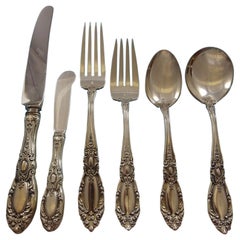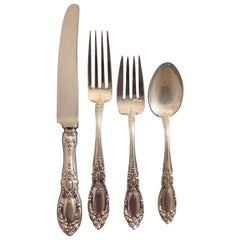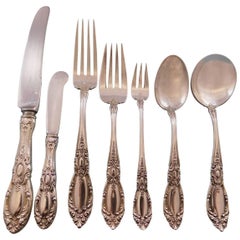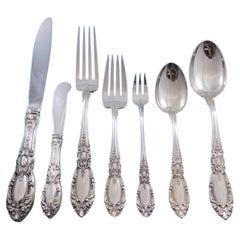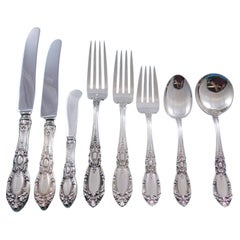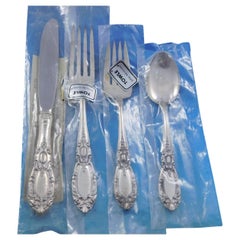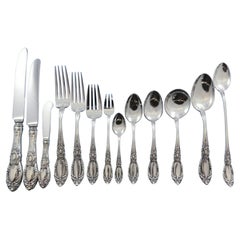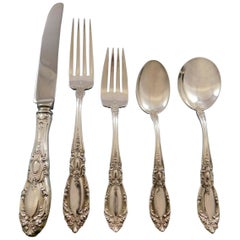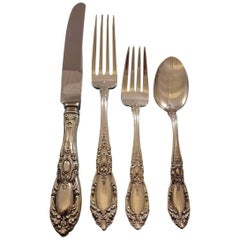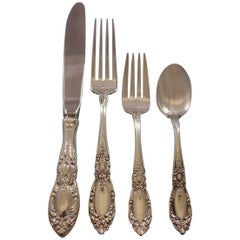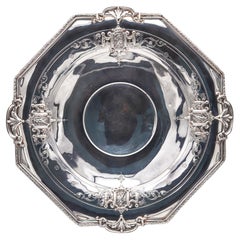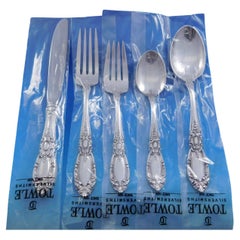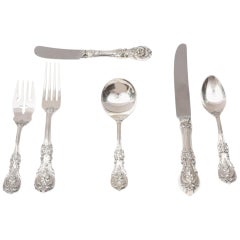Towle King Richard Sterling Silver Flatware
20th Century Tableware
Sterling Silver
Mid-20th Century Tableware
Sterling Silver
Mid-20th Century Tableware
Sterling Silver
Mid-20th Century Tableware
Sterling Silver
Mid-20th Century Tableware
Sterling Silver
Mid-20th Century Tableware
Sterling Silver
Mid-20th Century Tableware
Sterling Silver
Mid-20th Century Tableware
Sterling Silver
Mid-20th Century Tableware
Sterling Silver
Mid-20th Century Tableware
Sterling Silver
Antique 19th Century North American Edwardian Sterling Silver
Silver, Sterling Silver
Recent Sales
Mid-20th Century Tableware
Sterling Silver
Vintage 1930s American Sterling Silver
Sterling Silver
Vintage 1930s American Art Deco Serving Bowls
Silver, Sterling Silver
Antique Early 1900s Victorian Sterling Silver
Sterling Silver
Vintage 1930s Sterling Silver
Sterling Silver
Vintage 1930s American Sterling Silver
Sterling Silver
Vintage 1930s Sterling Silver
Sterling Silver
Vintage 1930s American Sterling Silver
Sterling Silver
Mid-20th Century Tableware
Sterling Silver
Mid-20th Century Tableware
Sterling Silver
Mid-20th Century Tableware
Sterling Silver
21st Century and Contemporary Tableware
Sterling Silver
Vintage 1980s German Mid-Century Modern Barware
Metal, Silver Plate
People Also Browsed
1990s French Renaissance Sterling Silver
Sterling Silver
Antique Mid-19th Century Russian Other Sterling Silver
Silver, Vermeil
Antique Late 19th Century Tableware
Sterling Silver
Towle King Richard Sterling Silver Flatware For Sale on 1stDibs
How Much is a Towle King Richard Sterling Silver Flatware?
Finding the Right Sterling-silver for You
Dining and entertaining changed drastically when we began to set our tables with sterling silver for holiday gatherings, wedding receptions, engagement parties and, in some of today’s homes, everyday meals.
Often called the “Queen of metals,” silver has been universally adored for thousands of years. It is easy to see why it has always been sought after: It is durable, strong and beautiful. (Louis XIV had tables made entirely of silver.) Sterling silver is an alloy that is made of 92.5 percent silver — the “925” stamp that identifies sterling-silver jewelry refers to this number. The other 7.5 percent in sterling silver is typically sourced from copper.
Neoclassical-style sterling-silver goods in Europe gained popularity in the late 18th century — a taste for sterling-silver tableware as well as tea sets had taken shape — while in the United States, beginning in the 19th century, preparing the dinner table with sterling-silver flatware had become somewhat of a standard practice. Indeed, owning lots of silver goods during the Victorian era was a big deal. Back then, displaying fine silver at home was a status symbol for middle-class American families. And this domestic silver craze meant great profitability for legendary silversmith manufacturers such as Reed & Barton, Gorham Manufacturing Company and the International Silver Company, which was incorporated in Meriden, Connecticut, in 1898, a major hub of silver manufacturing nicknamed “Silver City.”
Today, special occasions might call for ceremonial silver designed by Tiffany & Co. or the seductive sterling-silver cutlery from remarkable Danish silversmith Georg Jensen, but there really doesn’t have to be an event on the calendar to trot out your finest tableware.
Event- and wedding-planning company maestro Tara Guérard says that some “investment pieces,” such as this widely enamored alloy, should see everyday use, and we’re inclined to agree.
“Sterling-silver flatware is a must-have that you can use every single day, even to eat cereal,” she says. “Personally, I want a sterling-silver goblet set for 12 to 20; I would use them every time I had a dinner party. Ultimately, there are no criteria for buying vintage pieces: Buy what you love, and make it work.”
Whether you’re thinking “ceremonial” or “cereal,” browse a versatile collection of vintage, new and antique sterling-silver wares on 1stDibs today.
